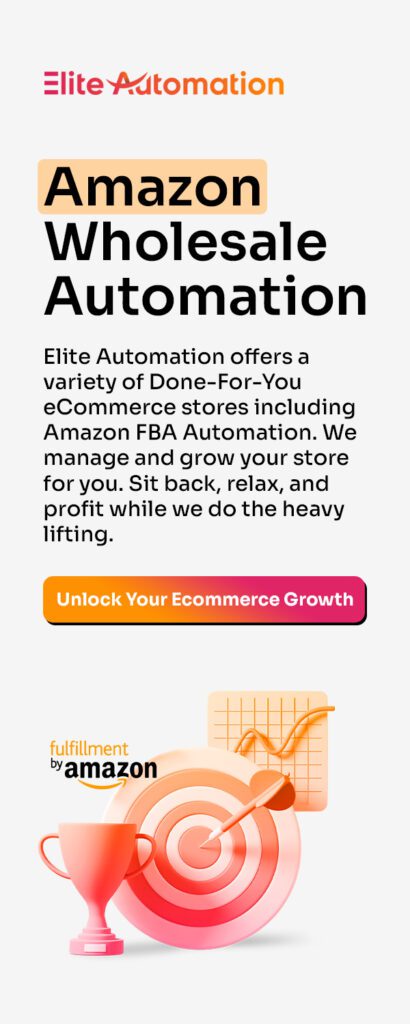Search engine optimization (SEO) is the practice of making your website appear more prominently in search engine results. It’s important for e-commerce stores because that’s where most people find products, so if you don’t make it easy for them to find you, they’ll go somewhere else.
Solid SEO, or search engine optimization, is a way to make sure your business, website or e-commerce store is ranked highly in search results. This happens because Google and other search engines use algorithms to determine which websites are most relevant to the keywords they’re searching for.
While many people think of SEO as just a matter of including the right keywords in your meta tags, there’s much more to it than that. You need to have a seamless website architecture, high-quality content on your site and blog, and backlinks from other credible sites. If you’re doing all these things as well as optimizing for specific keywords, your e-commerce site will be ranked higher in search results than its competitors—and that means more traffic coming straight to you!
On one hand, you need to make sure that your website is optimized for SEO and isn’t just a jumble of keywords. On the other hand, you also need to make sure that your site doesn’t look spammy or automated—which means you can’t just write content and hope for the best.
SEO involves a lot of different tactics, but we’ve broken down the 5 key factors to helping improve your ecommerce store’s SEO ranking.

5 Tips for Best SEO Practices:
1. Long Tail Keywords
Use long-tail keywords in your content. Long-tail keywords are more specific than broad keywords, so they’ll typically bring in less traffic than broad keywords would. However, they’re much easier to rank for, so if you can rank for long-tail keywords on Google with ease, then it’s worth it—especially if those long-tail keywords aren’t too competitive. This will give your website more credibility with search engines and readers alike!
Long tail keywords are important for SEO because they help you rank for more specific searches.
2. Proper Use of Meta Tags
First, what are meta tags? Meta tags are the hidden code that tells search engines what your website is about. They’re like an ad for your site, and they can help tell Google and other search engines what kind of content you offer.
The meta tag content can be anything from a short description of your site to a list of keywords that describe your site’s content. The more relevant the meta tag text is to your site’s actual content, the better.
Ensure your ecommerce store is using meta tags in your title, keywords, product description and tags. Implement product descriptions and meta descriptions (and other types of rich snippets) that include the most important keywords for each product or category.

3. Mobile Optimization
Make sure you have a mobile friendly website (or mobile-optimized) e-commerce store!
Mobile optimization is important for an ecommerce store because it helps you reach your customers when they’re on the go. Mobile users have a lot of options for shopping, and if you don’t optimize your site for mobile, you might lose those sales to other sites.
Mobile users tend to be younger than desktop users, so if you don’t have a mobile-friendly site, you may miss out on some big opportunities with younger people who are more likely to shop online than older generations. This means that if your site isn’t optimized for mobile devices, then you might be missing out on some valuable sales opportunities by not having a user-friendly experience set up just right for them!
Additionally, optimizing your site for mobile is so important because it can help increase conversions and improve sales performance overall!
4. Use High Quality Product Images
High quality images are important for SEO because they’re a visual representation of your content. The higher quality your images are, the more likely people will be to click on them and stay on your page.
If you have a high-quality image that’s related to your content and it’s used in conjunction with your keyword, then Google will be more likely to rank your page higher than another site with an image that’s lower quality or unrelated. Just make sure your website or storefront speed is not compromised by uploading too large of an image.
5. Website Readability
Site readability is important for SEO because it’s a factor that Google and other search engines use to determine how well a site is optimized for its users.
The more readable your site is, the better you are able to engage visitors and get them to stay on your site. Users will also be more likely to link back to your site or share it with others. The content should also be as relevant as possible to your overall website or storefront theme or niche.
We’ve decided to include a bonus tip for you to improve your e-commerce store’s SEO!

6. Bonus SEO Suggestion: Website Speed
Website speed is important for SEO because Google considers it a ranking factor. Slow pages can cause a loss of conversions, which is bad for business. Speed also affects your user experience, as slow pages force users to wait longer to see content, which can cause them to bounce back to the search results.
For example, slow load times can be a sign that there are problems with your site’s performance. Google considers several factors when ranking websites, including page load time and user experience (how long it takes for someone to navigate from one part of your site to another).
If you don’t optimize your site’s performance and make sure it loads quickly, you’re missing out on potential traffic and could potentially be penalized by search engines. You can test your website speed out if you are curious how quickly your storefront is currently loading.
Conclusion
To wrap things up, SEO, or Search Engine Optimization, is important since it allows potential customers to find your site easily when searching for products like yours. These people may not even know about your brand yet, but if they search for “labrador dog collars” or “vegan leather gloves,” then your site should pop up among the results!
This gives them an opportunity to learn more about what you’re offering before they buy from anyone else. We hope today’s ecommerce SEO tips have helped you. We invite you to share this article if you learned something new.

